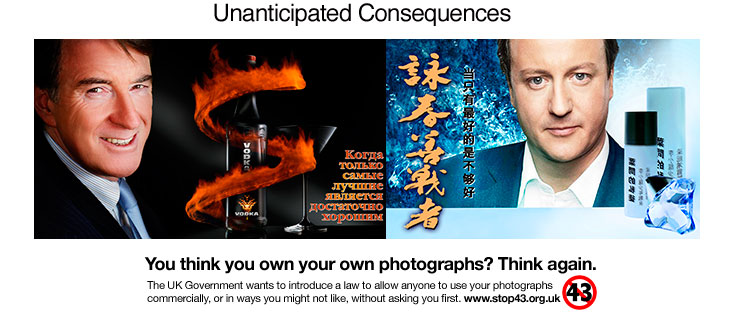It sounds so simple. All you need is the right camera and pretty soon you’ll be rolling around in piles of cash. You won’t know where to put it all. Stuff it under the mattress, and you may find yourself sleeping with your nose to the ceiling.
That is if the BBC technology show Click is to be believed. $480* for a harshly-flashed shot of a boy with his fishing catch. $600 for a photo of a cat and a dog looking at each other. I know photographs can command such fees, even selling for many thousands of Dollars for top-end advertising uses, but I’m dubious as to whether the photos shown in the BBC piece genuinely achieved these figures, or whether they were just plucked from the internet for illustrative purposes. They all looked more like royalty free (RF) microstock pictures to me, whereas the figures quoted reflect rights-managed fees. Hopefully someone at Click can let me know because the stress of not knowing for sure is an anguish to me. No really it is.
The fact is, for the majority of people hoping to turn their hobby into some kind of cash cow, RF microstock is generally their entry into the market. And within this market it is fair to say that while you can be paid money for your pictures, it is but a rare (and fast-diminishing) number of photographers who ever make any kind of income this way. All but those at the very top of their game will receive anything more than a few dollars a year from microstock sales. And I mean literally, a few Dollars.
Seeing articles like Click’s, the temptation is to start taking pictures in order to build up a stock library. You might go out and buy a new camera on the basis of all the untold riches the programme suggests are there for the taking, but exactly as the show says it’s getting harder for professionals to make money from stock, so it’s getting harder for amateurs too as the market becomes flooded with ever more contributors generating hundreds of thousands of images the market simply doesn’t need.
My advice to those who are tempted to take stock images would be to take pictures first and foremost for pleasure. Don’t turn your hobby into a monster that requires constant feeding, constant monetary resources with only the promise of a bigger hole in your finances at the end of it because microstock agencies do not exist to make money for amateur photographers. They exist to make money for microstock agency owners. Contributors to iStockphoto can expect to get a 15% cut from each image they sell. With prices often as low as $1 per image, that’s a lot of sales required to even pay back the shoe leather used to get you to where you wanted to take pictures.
Forget about fuel, the camera, lenses, flash, memory cards, computers, software and snazzy photographer’s vest that makes you look like a professional (idiot). Or the time spent getting your pictures ready for stock, captioned, keyworded and uploaded. Whatever anyone says, when you see an article telling you it’s easy to “make money” from your camera or “get paid” for your pictures, treat it like snake oil. Take pictures for fun; don’t lose the fun of your hobby.
*I don’t know why a BBC show insists on showing the stock sales in USD, but for the purposes of this article I’ve stuck with that. Maybe it’s because the BBC prefers viewers to send in their photos for free, so GBPs aren’t relevant.


